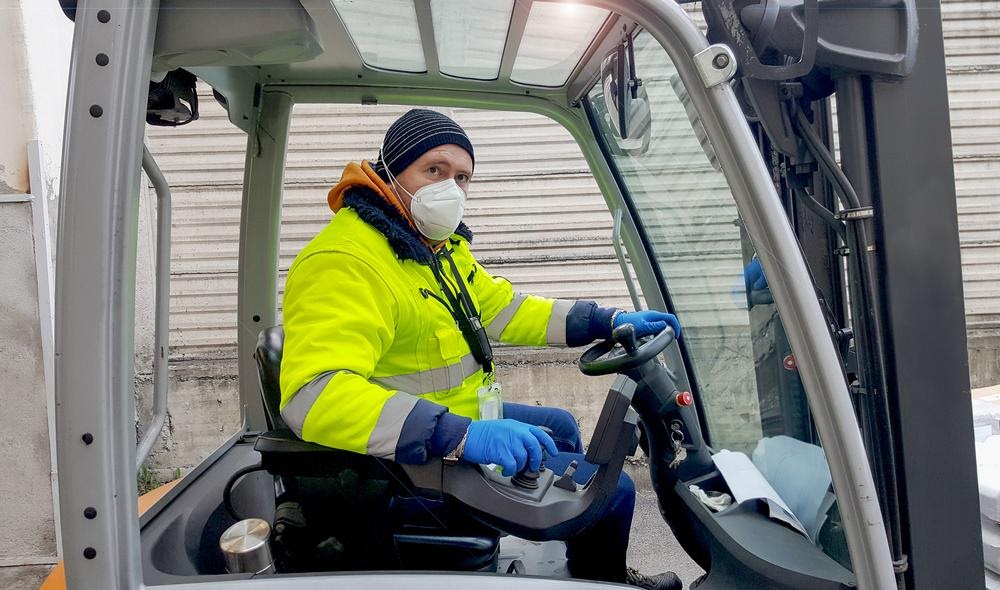
Though many small businesses have been hurt by the severe economic downturn caused by the Coronavirus Pandemic, many are still valiantly fighting to stay afloat. If your small business is keeping operations open and working your way through the chaos, it’s important that you implement the necessary safety measures to keep your workforce healthy and safe.
If you’re not sure where to start, we’ve got you covered. In this article, we are covering 5 of the most important steps you can take to protect your workforce from the coronavirus.
Work from home
First, the simplest step you can take to keep all your employees safe is to simply work from home. Of course, this may not work for all businesses – restaurants, boutiques, cafes and bars probably won’t be able to work from laptops – but for those businesses that can, it’s a great option.
By using video conference apps, workplace instant messaging software, and diligent scheduling and time-tracking, most professional services and many customer service industries can very effectively be moved online. If you haven’t completed that transition yet, it’s probably time to consider it. No one knows where there will be a serious breakout of the virus next, and allowing your workers to telecommute is a great step to take to ensure it’s not your city or town.
Use personal protective equipment (PPE)
If you do run a business that requires a storefront to service patrons, then using PPE is an essential step you should take. Whether you operate a café, own a mechanic shop, or run a grocery store, you should do your best to protect your employees and customers. Try to purchase PPE in bulk to hand out to employees daily, and ensure that customers are using it before they enter your establishment. Here are a few of the items you should require:
- Disposable face masks
- Hand sanitizing stations
- Gloves
- Face shields (for some professions)
- Disinfectant wipes and spray
- Clear shields for cashiers
In addition to using these, advise employees to wash their hands regularly, and to diligently cover any cough or sneeze. Keeping your business sanitary and virus-free is crucial; you should spare no expense in protecting the lives of your employees and patrons.
Follow social distancing guidelines
Next, it’s crucial for small businesses to implement policies that are in compliance with social distancing guidelines. The CDC recommends that individuals stand at least 6 feet apart from each other in order to stop the spread of the coronavirus.
Restaurants and cafes should mark on the floor what distance customers must stand from each other, so when standing in line to pay they do not inadvertently expose each other to risk. You should also ask that employees stand 6 feet away from each other and from customers.
Pivot to take-away and curbside service
Next, small businesses like restaurants, cafes, and even some boutiques may be able to pivot to a purely take-away style operation. Many people rely on restaurants for their daily meals, so stay at home orders have largely exempt restaurants from completely shutting their doors. That means you can operate your business, albeit with a few changes to enhance safety.
- Be sure to enforce social distancing guidelines as mentioned above. You can mark with tape on the sidewalk where customers should stand as their wait for their order.
- Use a touch-free payment method, preferably one that allows those with tap-to-pay credit cards and phone apps to simply tap and go, without having to use a touch screen or pen. If customers do have to use a pen or touch screen to sign, sanitize it after each use.
- Wipe down bags, boxes, and other items which you use to serve food.
Aside from being a great way to practice safe distance, curbside has certainly led to fewer alcohol related accidents during Covid-19 as well.
Offer generous sick leave
Lastly, try as we might to mitigate the spread of the virus, the fact is that many people will still become sick. That means it’s crucial that you offer generous sick leave to employees, so they don’t feel compelled to come into work and infect everyone else they come in contact with.
It may seem like allowing your employees to take two weeks off work sick will damage your bottom line. However, in the long run, it may actually be the cheaper option. Employees who come to work sick may infect many others. And, if your entire workforce is sick, chances are you won’t be able to stay in business.
Stay safe and be sure to implement these safety measures to keep yourself, your employees, and your customers safe during these troubling times.








